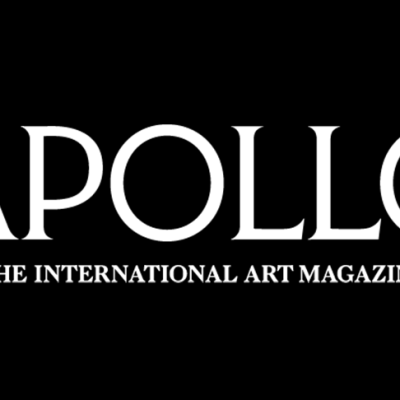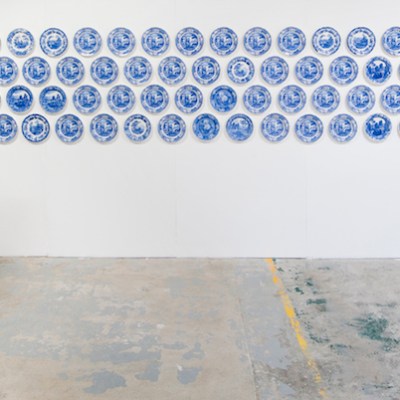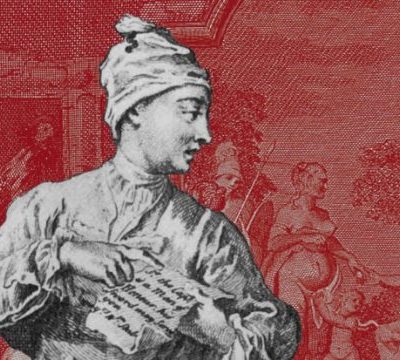Apollo’s regular round-up of art market headlines and comment.
Old Masters and new imposters | Next week, it’s Old Master sales week in New York and fake news is rife. Talk of fakes that is, following the news that Sotheby’s has declared a painting of Saint Jerome – thought by many to be by Parmigianino and sold by the auctioneer in 2012 for $842,500 – a fake. Now, after promising to refund the buyer in full, Sotheby’s is taking the vendor, Luxembourg resident Lionel de Saint Donat-Pourrières, to court. As reported in the Financial Times, it was Orion Analytical, a US-based scientific research company bought by Sotheby’s in December, that carried out the tests on the painting and found modern pigments.
Sotheby’s have produced this statement in response to the news: ‘When we learned last year that the painting may have originated from Giuliano Ruffini, we informed the purchaser from our January 2012 auction and initiated a process including technical analysis that established that the work was undoubtedly a forgery. Ruffini is an individual at the centre of a broad-ranging and well-publicised criminal investigation for allegedly selling a considerable number of Old Master paintings that are modern forgeries.’
St Jerome formerly attributed to Parmigianino, and recently declared a fake by Sotheby’s. Courtesy Sotheby’s

Ruffini’s name is becoming rather familiar; he also owned the Frans Hals portrait, sold by Sotheby’s for £8.4m in 2011 and pronounced a fake after pigmentation tests, again, by Orion Analytical. Mark Weiss, the London Old Master dealer who was the source for the Hals, maintains he believes the painting is authentic and he is still in discussions with Sotheby’s.
The Sotheby’s statement continues ‘As was true in the recent case of the fake Frans Hals painting, Sotheby’s is honouring its guarantee and fully reimbursing our purchaser. We have also exercised our contractual right to cancel the sale, which requires our consignor to reimburse us. While we would have preferred to settle this matter out of court, our consignor has refused to abide by his obligations and we have been left no other option than to pursue legal action.’
Ruffini also previously owned a Venus by Lucas Cranach the Elder and David with the Head of Goliath by Orazio Gentileschi, both of whose authenticity is currently in question.
The trade now wonders how many more sophisticated forgeries will emerge. While these cases could be unconnected, there is speculation a master forger (always a glamorous concept) is at work. If so, they are a polymathic mimic, capable of replicating both Hals’ northern European realism and Parmigianino’s Italian Mannerist flair.
James Martin, Orion Analytic’s founder, is setting up laboratories in the auction house’s London and New York offices. Sotheby’s seem worried enough about the situation and protecting their reputation that they are spending considerable money on the resources necessary to combat fakes. But can an in-house authentication service ever be viewed as entirely impartial?
Auctionata Paddle8 files for insolvency | Online auctioneer Auctionata Paddle8 has filed for insolvency to restructure the business, only eight months after the two companies merged. Thomas Hesse, CEO of the parent company, told German business paper WirtschaftsWoche that insolvency was necessary because they’d been unable to secure funding quickly enough. However auctions will continue and according the The Art Newspaper the Berlin-based firm is still in talks with investors about future funding. New York-based Paddle8, however, will not be subject to the insolvency process and has announced it has found an investor to buy back the company, Paddle8 Inc.
The weekend’s fairs | The year’s art fairs kick off this weekend with the London Art Fair, BRAFA in Brussels and New York’s Winter Antiques Show opening their doors. Catering largely to the lower and middle sectors of the market, the London Art Fair offers a mix of contemporary art alongside modern British. Early sales in the latter field include some sensitive works of academic appeal. London gallery Piano Nobile have already sold several works (in six figures) by the exacting painters William Coldstream and his pupil Euan Uglow; the pair are currently the subject of an exhibition at the gallery’s Holland Park headquarters (until 28 January). Fellow UK dealer Jenna Burlingham sold a diminutive c. 1941 painting by Victor Pasmore, Hammersmith Interior. It had been in a private collection since the 1960s, sent by Pasmore to the owner in the post in response to a letter asking what could be bought for £10.
Contemporary galleries take on British modernism | Modern, or simply 20th-century, British art has often been derided as provincial. But some of the big international contemporary galleries are turning their attention to the field. As Paul Nash’s revelatory show runs at Tate Britain, Gagosian is staging a not-to-be-missed exhibition of Michael Andrews, a most underrated painter, while Hauser & Wirth Somerset showcase Elizabeth Frink, a sculptor who has been too long in the shadow of Barbara Hepworth. About time too, but with wealthy market-makers such as these now in the game, prices may soon spiral.




